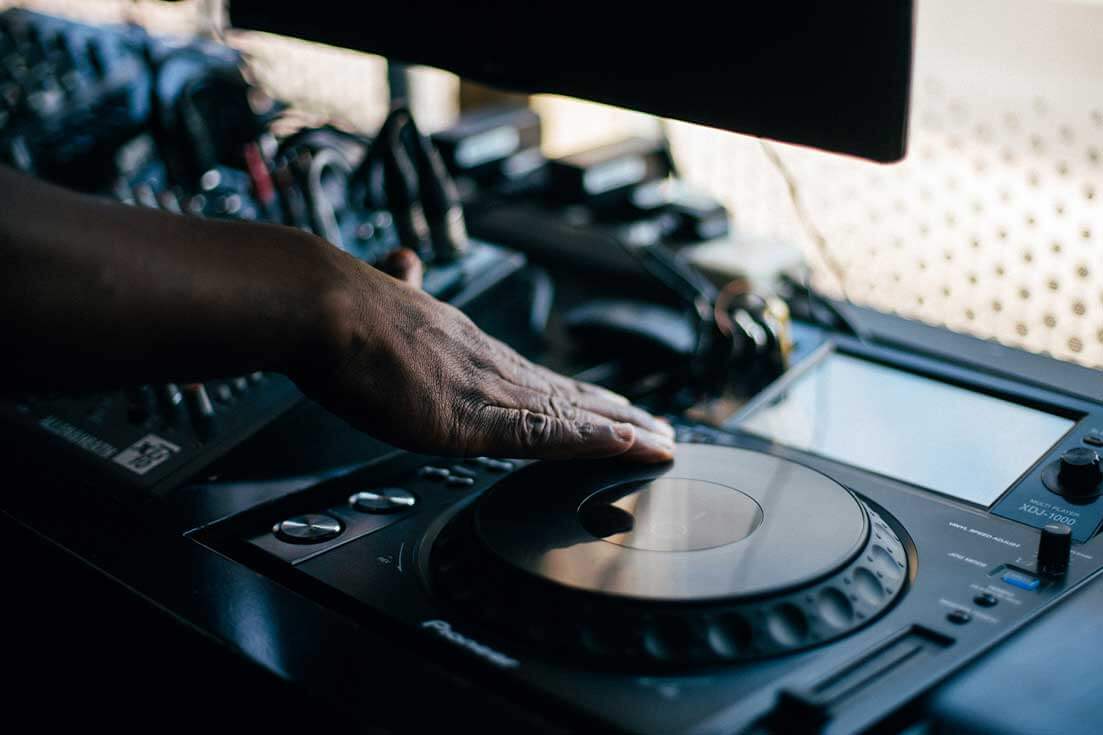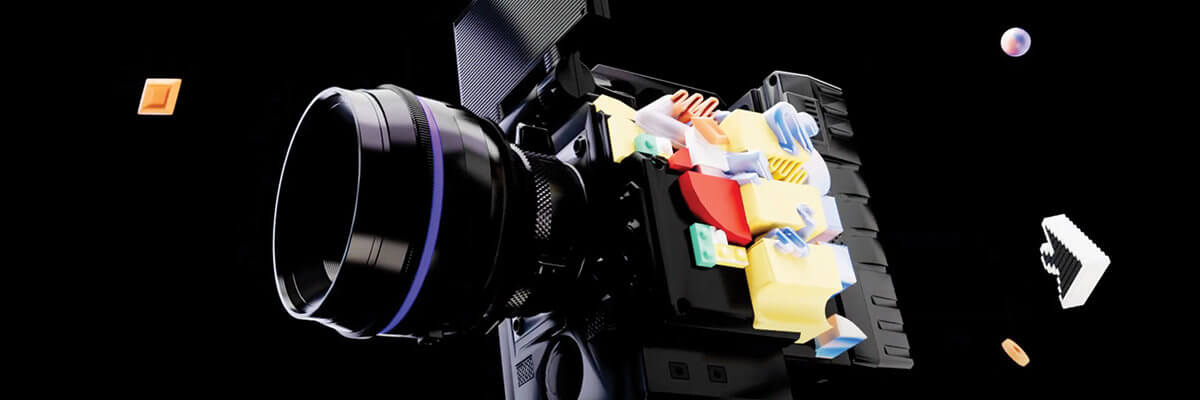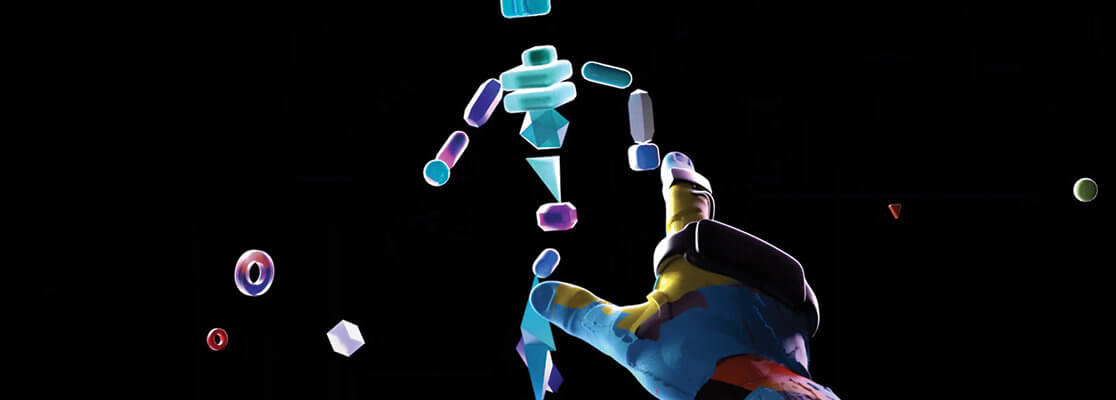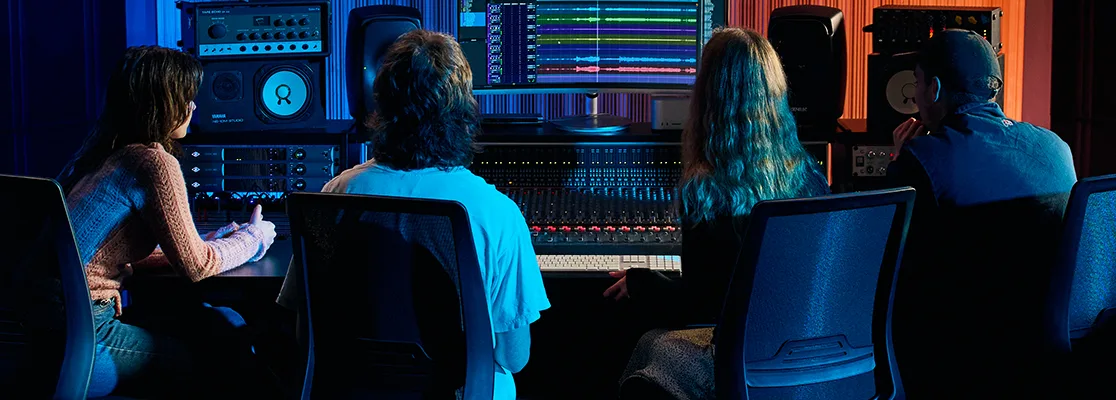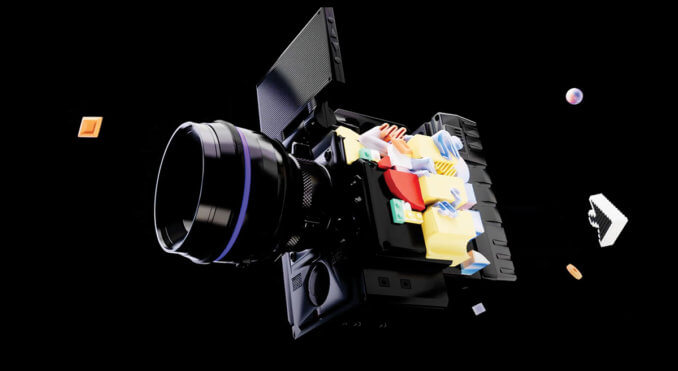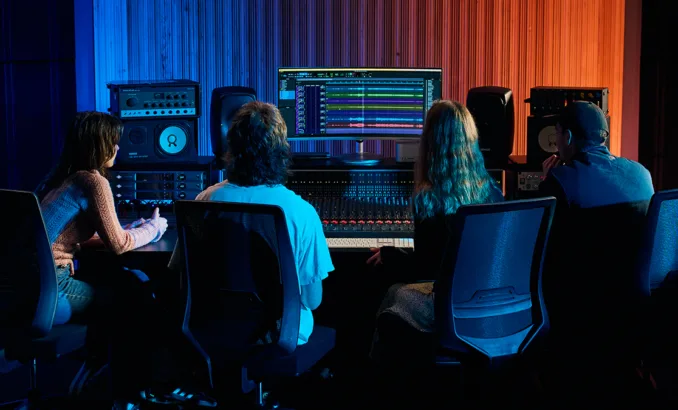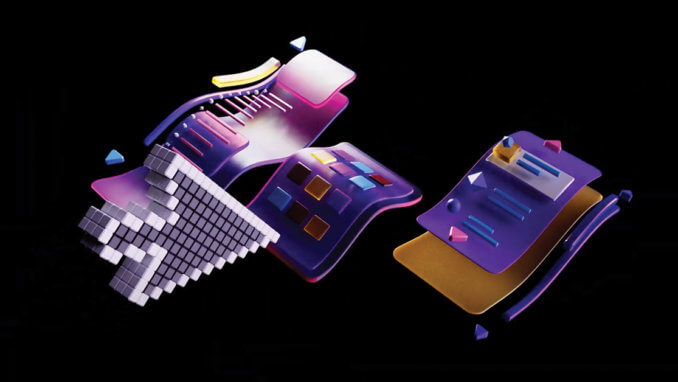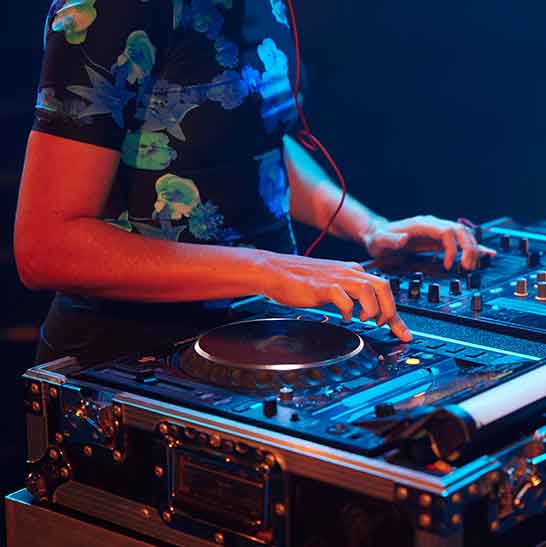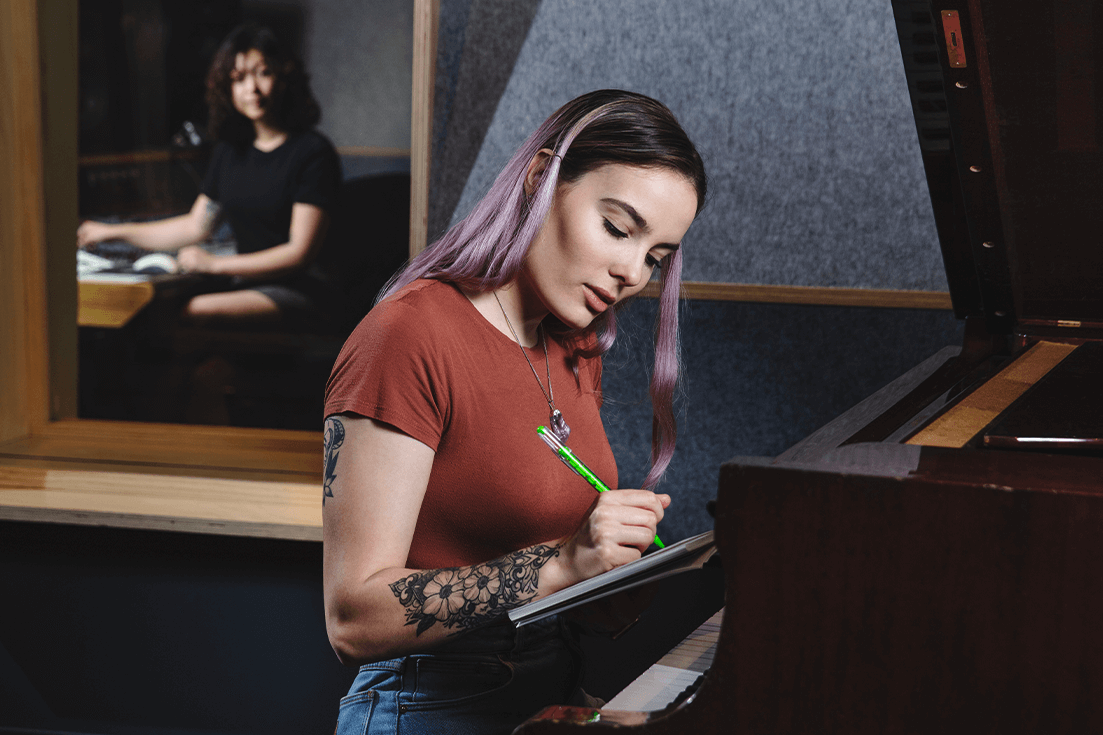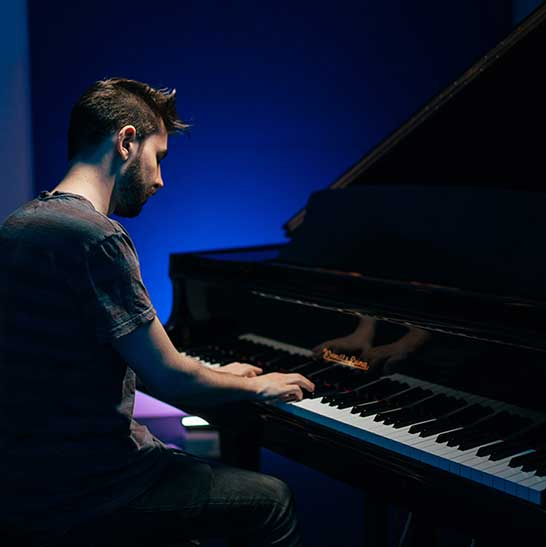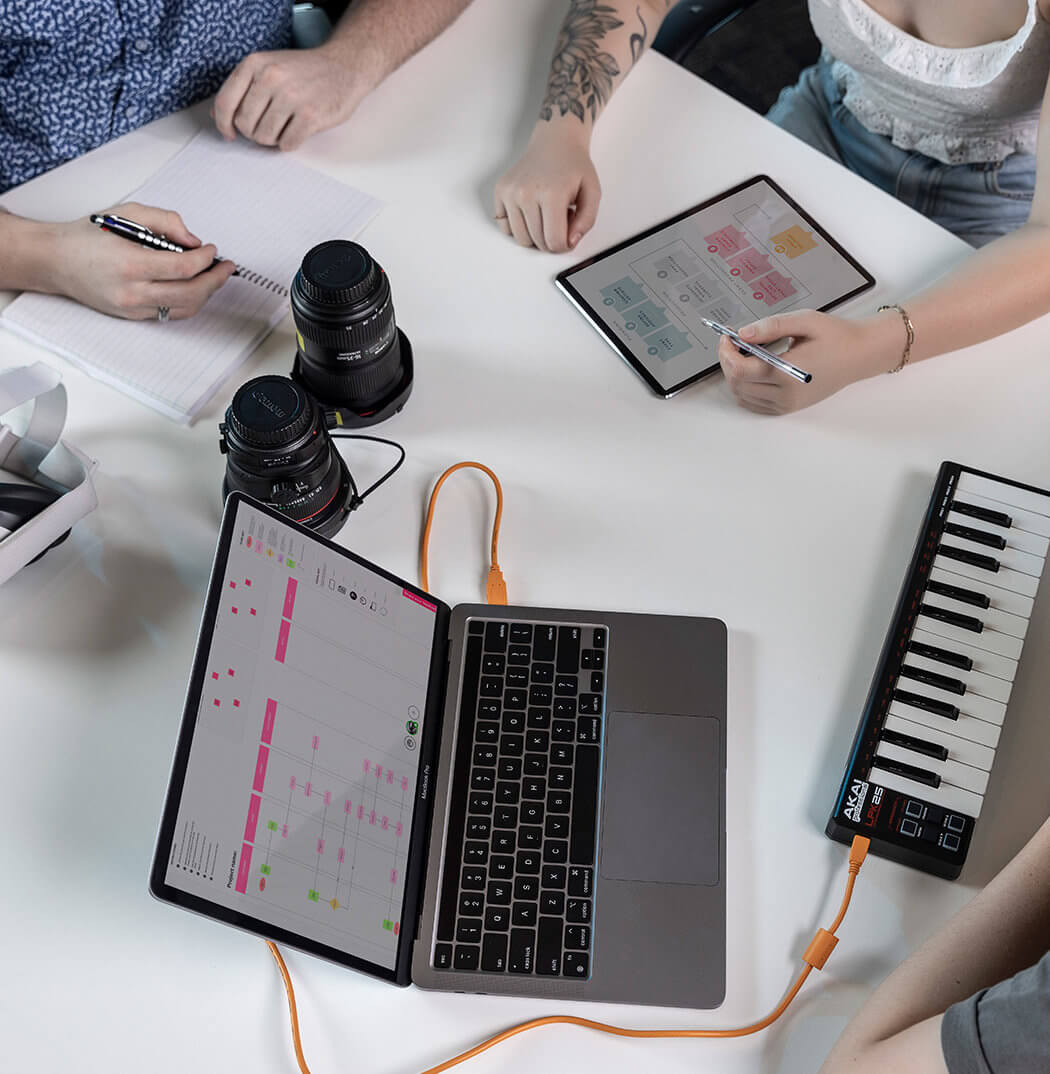Diploma of Music
Do you see yourself on stage in front of thousands?Producing beats and EDM hits?
Working in a studio producing records?
Building and designing your own live events?
Then studying Music as SAE is where you need to be.
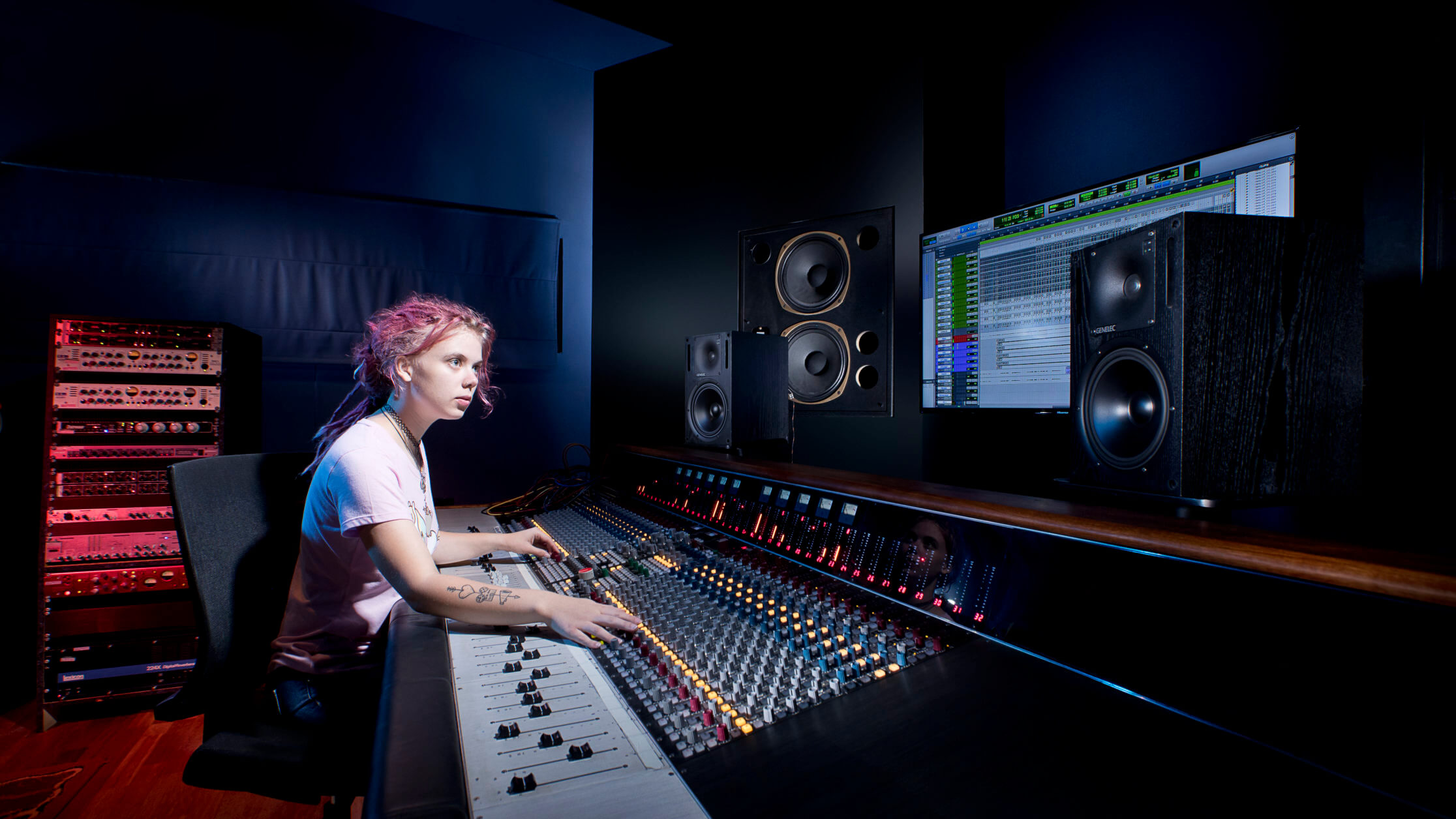
On-Campus
Ideal for students who thrive in a face-to-face environment with access to studios, peers, and in-person support.
- Includes 2 hours of weekly on-campus classes plus 1 hour of national content (online or asynchronous).
- Classes run Monday to Friday, morning, afternoon, and evening, with access to digital resources and support.
- Perfect for hands-on learning, collaboration, and real-time feedback.
Blended Delivery
Designed for those who want the best of both worlds, structured face-to-face learning with online flexibility.
- Combines 2 hours of live (on-campus or online) classes with 1 hour of national content each week.
- Balances in-person connection with the convenience of remote access.
- Supported by SAE’s online learning tools and self-directed study resources.
National Expertise
No matter how you study, you’ll learn from SAE’s national team of expert, industry-aligned faculty.
- Access top educators and specialists across Australia, wherever they’re based.
- Benefit from national masterclasses, guest lectures, and collaborative learning.
- Tap into deep industry knowledge that goes beyond your local campus.
Units x Costs ($AUD)
4 x $2,999
4 x $3,236
Indicative Annual Course Fee*
(based on 1.0 EFTSL)
$24,940 AUD
Plus Student Services and Amenities Fee (SSAF)
* The Indicative Annual Course Fee reflects that students are charged fees on a per unit basis and the fee for a unit may increase.
For more information view the SAE Fee Schedule or visit the Fees & Payment page.
Units x Costs ($AUD)
4 x $3,495
4 x $3,773
Indicative Annual Course Fee*
(based on 1.0 EFTSL)
$29,072 AUD
Plus Student Services and Amenities Fee (SSAF)
* The Indicative Annual Course Fee reflects that students are charged fees on a per unit basis and the fee for a unit may increase.
For more information view the SAE Fee Schedule or visit the Fees & Payment page.
Complete your course faster by studying the course units over approximately 7 months (2 trimesters).
Complete your course faster by studying the course units over approximately 7 months (2 trimesters).
Whilst still classified as a full-time study load, you will complete the course units over one year (3 trimesters).
If you want to take a little longer, that’s ok too. We’ll help you work out the best study load to suit your needs.
Note: Part-time is not available for international students.
September 2025
February 2026
May 2026
September 2025
February 2026
May 2026
September 2025
February 2026
May 2026
September 2025
February 2026
May 2026
September 2025
February 2026
May 2026
Your creative career starts with SAE
Course Structure
The Diploma of Music is nested within the Bachelor of Music and shares the first stage which provides foundational learning and applied skill.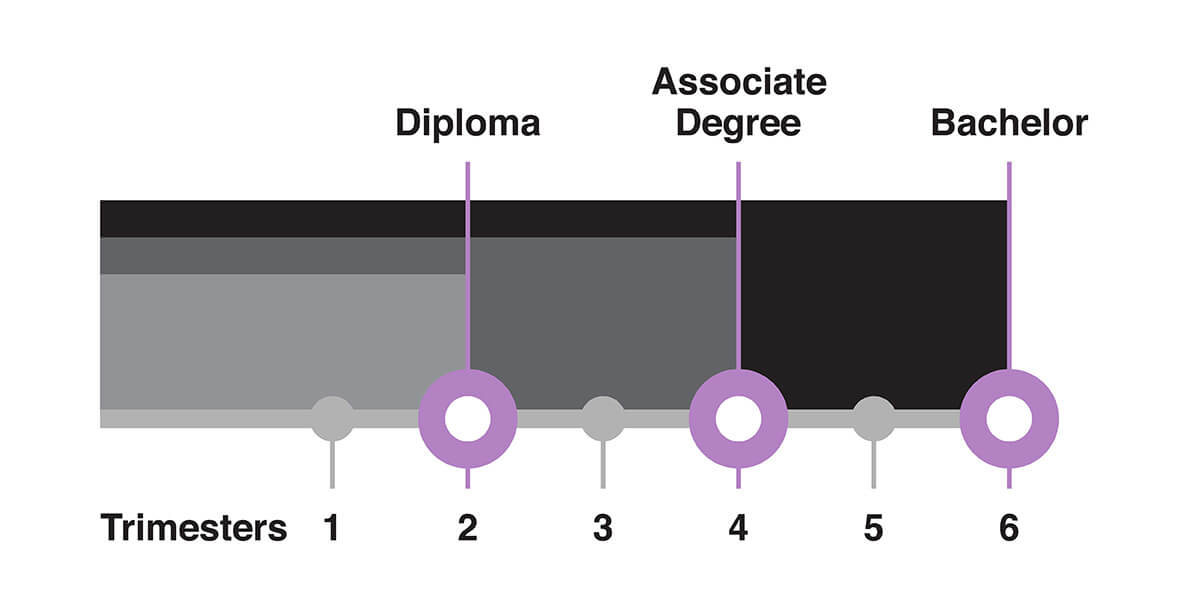
Thinking about Audio will introduce you to creative and scholarly thinking in your discipline. By examining leading thinkers and movements in your discipline, you will develop an understanding of key practical and transferable skills that will enable you to develop a deeper understanding of the learning process, research, and the nature of creativity and scholarship. This forms an essential foundation for your studies and your future career by fostering your skill as an independent learner and reflective practitioner.
This unit will help you develop foundational skills for composing music and lyrics effectively, and effectively and communicating musical concepts in different forms. You will learn to identify, employ and communicate music theory concepts including rhythm, harmony, melody, notation, structure, form, texture and genre, for application in your own creative work. Through iteration, peer review and mentor feedback, students will develop their songwriting skills through the development of several projects culminating in several pieces of music that form the beginnings of a portfolio of works.
This unit introduces you to core skills and concepts of electronic music production. You will work on a range of music projects to develop skills in recording, sampling, sequencing and synthesis. You will develop your abilities across contemporary tools and technologies to produce original music in a DAW using a combination of MIDI and audio manipulation. You will also learn how to produce a variety of sounds to satisfy a brief and add effects to enhance the sonic qualities of your productions.
This unit introduces you to core skills and concepts of studio and analogue music production. Across a range of projects, you will develop skills around microphone techniques, analogue signal flow and engineering techniques, recording and mixing. You will develop your abilities across contemporary tools and technologies to produce original music in a DAW using studio production techniques. You will also learn how to produce a variety of sounds to satisfy a brief and add effects to enhance the sonic qualities of your productions.
This unit explores the concepts of entrepreneurship, innovation and project design. You will develop approaches to identify promising opportunities and actionable strategies to transform them into tangible successes. Through exposure to developing new ideas, processes and ways of working - both individually and in entrepreneurial teams - you will hone skills to put creative ideas into practice and achieve real-world impact.
As Alan Kay explained, "The best way to predict the future is to create it", so let's get at it!
This unit introduces you to the concepts of stagecraft, live music performance and musicianship, production design and the technology used in live-sound production. Musical artists often play a leading role in designing and executing live performances of their music. Live music is both a major source of an artists income as well as a branding and marketing event. Additionally, live sound experience, skills and knowledge can open up regular, well-paid work within the music industry.
Designing and producing a live music performance plays an important role in engaging audiences and creating entertaining experiences. Visuals, costumes, props, lighting and stage design can all contribute to successful music performances and developing these skills in addition to technical audio skills will provide you with a broader range of professional skills. Repertoire, musical arrangements and genre conventions are some of the skills employed by musicians in developing their musical works.
In this unit you will be given opportunities through the project design to collaborate with students from other disciplines and through analysis and planning the unit will culminate in a live event of your own design.
Understanding musical genres is a core skill for successful songwriters and music producers. This module builds on your knowledge of music with a focus on musical genres and styles, genre structure, texture, melody, harmony, and rhythm, as well as aspects of history and social connections.
Knowledge of musical genres is developed through a broad range of activities and projects incorporating analytical listening, transcription, group performance and composition within the specific genres.
In Music Studio 1 you will learn the professional application of a range of songwriting and music production techniques. This includes working with other producers, writers, performers and external musicians to produce a recording, contributing to a sample library, remixing an existing track and working to a commercial client brief. These activities will require you to be adaptive, respond to challenges, solve problems, be self-directed and successfully communicate with others. Through working in these applied contexts, you will deepen your knowledge of songwriting and music production, so that you can respond creatively to a fast-turnaround brief.
Learn using Industry Tools & Software







DIPLOMA OF MUSIC
The Diploma of Music, nested within the Bachelor of Music, builds the foundational skills underpinning a successful career in today’s modern music industry. You’ll learn and apply theoretical knowledge and best practices while accessing studios with cutting-edge equipment.
You’ll develop foundational and generalized skills in songwriting, music production, electronic music production, music industry and collaborative music making.
Through hands-on training, we’ll help you amplify your talents, refine your skills and sharpen your craft in a matter of months. You’ll be guided by master lecturers who will mentor you in all key areas, while also giving you great insight into the music industry.
Upon completion, you will be eligible for up to 80 credit points towards the Bachelor of Music.



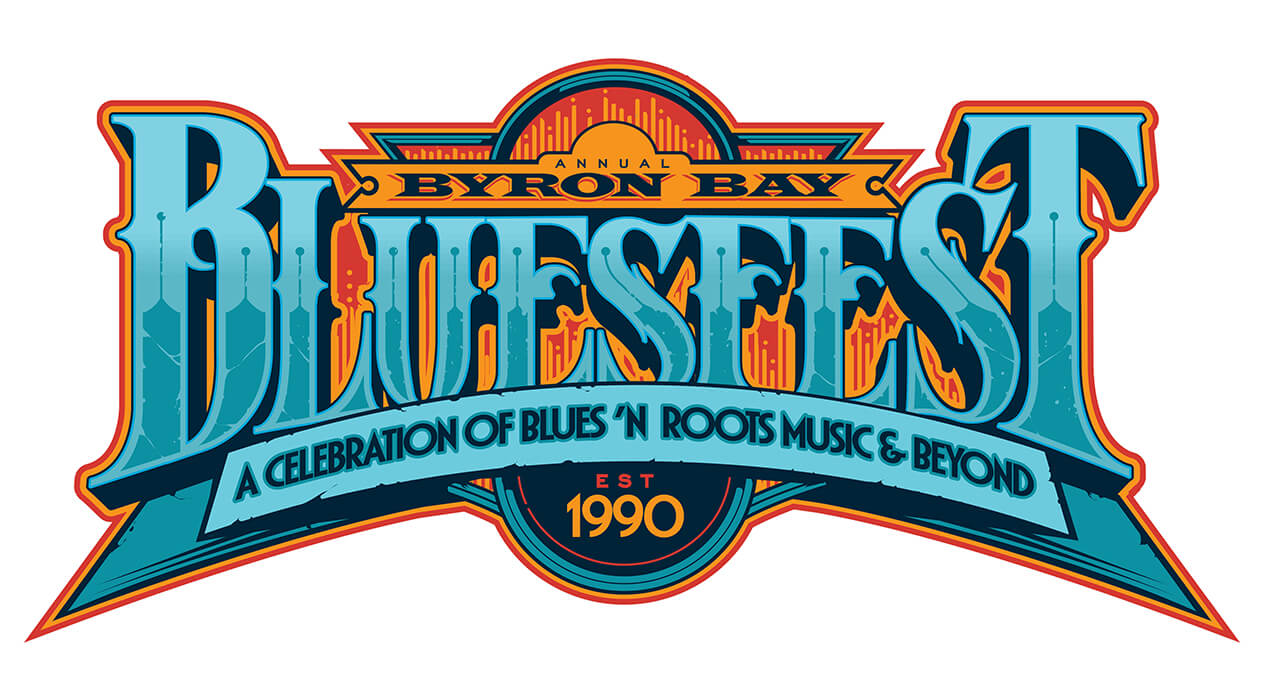

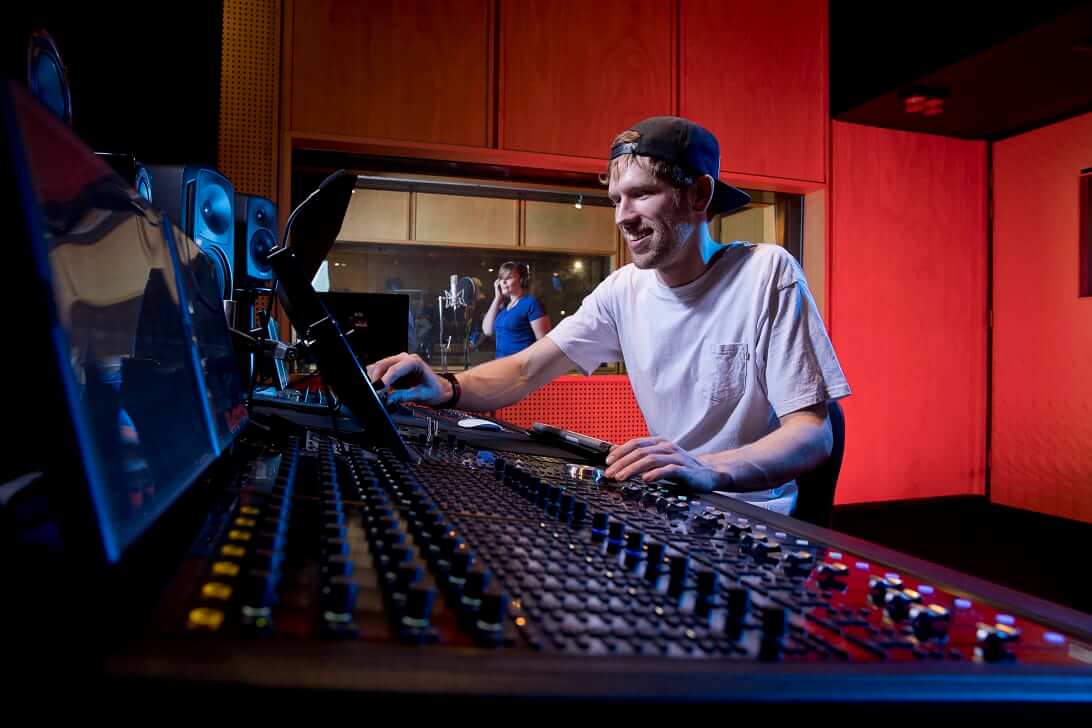
Career Outcomes
What jobs will this course lead me into?
- Studio composer
- Music Producer
- Music Technician
- Artist and Repertoire Scout
- Music and Sound Designer
- Voice over Recordist/Engineer
What our students say about SAE
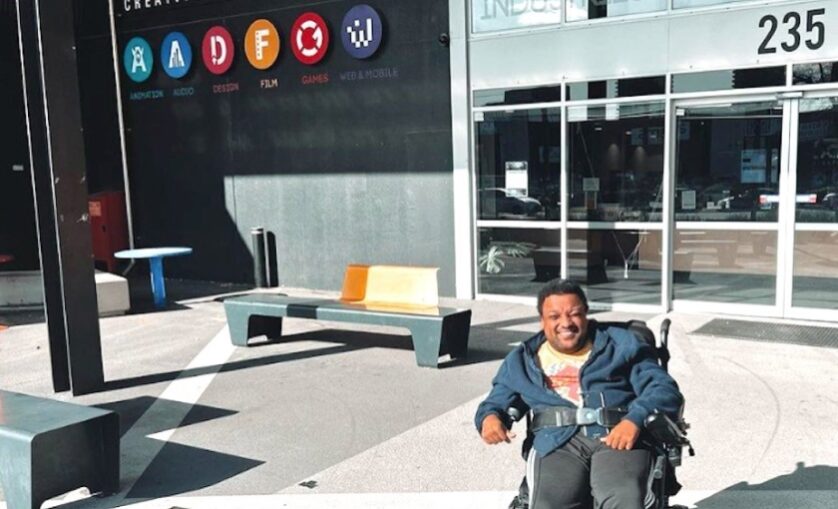
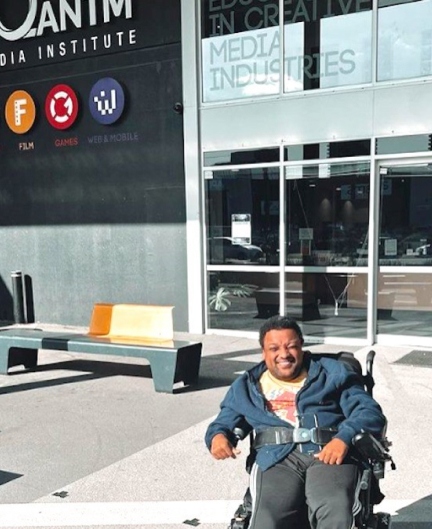
Samson Hailu
Bachelor of Music student

Michael Weir
SAE Alumni | Current Job: Professional Musician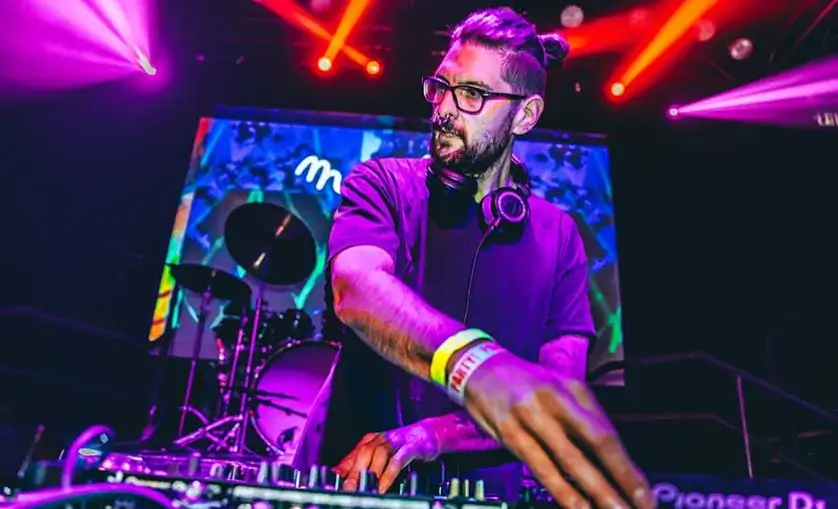
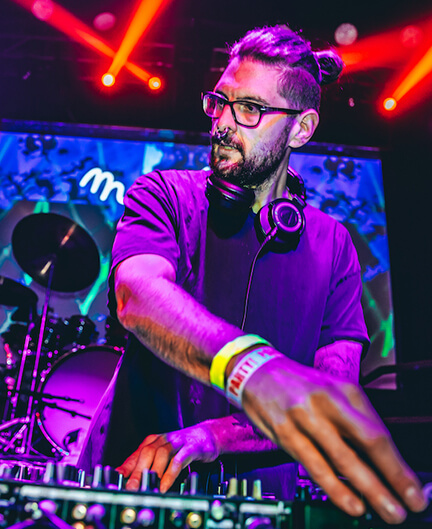
Bill Day
SAE Alumni | Current Job: DJ Bill Day AKA Mr BillSAE Diploma of Music offers:
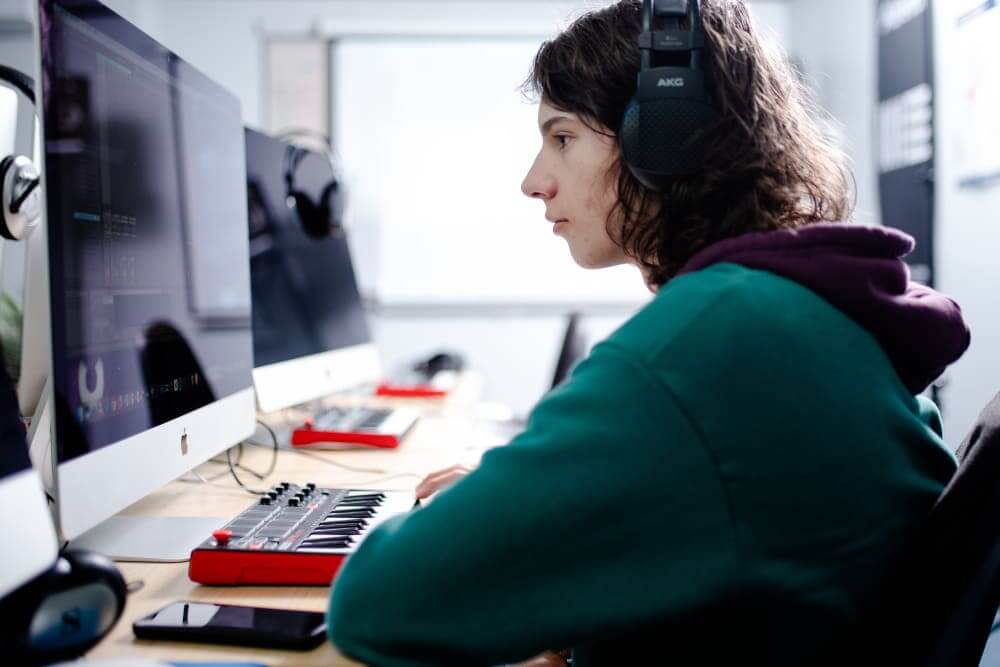
YOUR CAREER IN MUSIC BEGINS NOW
What you'll learn
FEE‑HELP* is an Australian Government loan scheme that assists eligible fee paying students pay all or part of their tuition fees. It cannot be used for additional study costs such as accommodation or text books. The total amount of FEE‑HELP a person can use is known as the ‘FEE‑HELP limit’.
Once a person begins using FEE‑HELP, the amount of FEE‑HELP they have left to use is known as their ‘FEE‑HELP balance’.
* Terms and conditions apply. For the latest updates regarding FEE-HELP please refer to sae.edu.au/fees
For information on tuition fees visit the Fee Schedule section of the website.
Have a question and don’t know where to start?
Fill in the General Contact form and a representative will be in touch soon.

Easy transition into the Bachelor Course
This means that when you complete an SAE Diploma you will be awarded the maximum credit points available, providing you with the opportunity to seamlessly transition into the higher-level Associate and Bachelor degree qualifications if you choose to do so.
CREDIT AND RECOGNITION OF PRIOR LEARNING
SAE may recognise your prior learning and may grant credit towards satisfying the requirements for a higher-level program. This is applied where previous learning is considered equivalent to the content and learning outcomes prescribed for units within the program.
For full details, please refer to SAE’s policy on recognition of prior learning and credit transfers.
